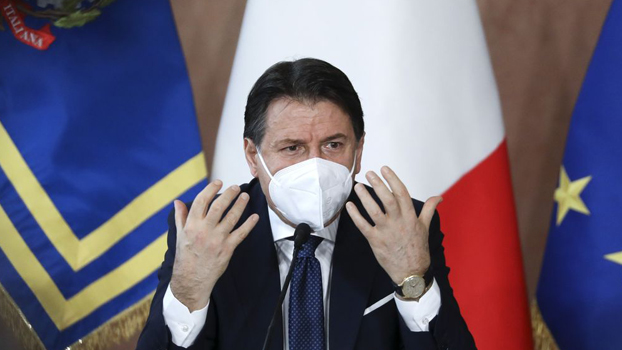Italy needs a good political shakeup
Strong leadership is needed to chart the country’s path out of the pandemic

Can a country weather a political crisis on top of a pandemic and a recession? Italy is about to find out.
Matteo Renzi, the country’s former prime minister and leader of a small centrist party, has withdrawn his ministers from the administration of the current premier, Giuseppe Conte, bringing it toward the verge of collapse. The Conte government has often been too divided to provide Italy with the strong leadership it needs to map a long-term path out of the pandemic. In this sense, a change of administration may not be a bad thing. However, the political parties need to come up with a more competent and cohesive alternative — and do so quickly.
Until now the pandemic has served to paper over the deep divisions running within Italy’s governing coalition. The alliance of the left-wing Democratic Party, the populist Five Star Movement, Renzi’s centrist Italy Alive force and other smaller groupings was born as a way to avoid new elections that would have propelled a right-wing coalition led by Matteo Salvini into power.
The difference between the various parties didn’t matter much since, for nearly a year, Conte ran the country largely via emergency decrees to impose draconian restrictions including the first full lockdown in the rich world. Over time, however, Renzi became impatient with the prime minister’s solipsistic attitude and worried about the coalition’s economic plans. On Wednesday evening, in a shock press conference, he decided to pull the plug.
Italy is the land of convoluted crises, and this one is no exception. Renzi has left all options open including — quite astonishingly — backing a new Conte administration. More likely, Italy’s former prime minister is seeking to be part of a new government with a different leader. The Democrats and Five Star are rallying behind Conte, but it’s less than clear they can find enough votes in parliament to keep him in power. Other scenarios include new elections or a national unity government led by a technocrat.
Conte’s time in office has been more notable for his ability to stay in power than for his achievements. The former law professor was plucked out of anonymity in 2018 to become prime minister in the turbo-populist coalition between Five Star and the right-wing League. He then performed an extraordinary U-turn, renounced most of his earlier convictions and led the new center-left administration created in September 2019.
His management of the pandemic has been mixed: Italy has recorded one of the worst death tolls and one of the biggest drops in gross domestic products in Western Europe, though its vaccination rollout, at least for now, is among the best in the European Union. More worrying is Italy’s slow progress in launching a plan of long-term economic recovery: Rome is set to receive more than 200 billion euros ($243 billion) in grants and loans from the euro zone’s 750 billion-euro recovery facility, but the government has only just approved an outline of how it intends to use this money.
In theory, there would be room to improve on this uncertain performance. It’s entirely legitimate to have a crisis amid a pandemic: If a government is ineffective, it’s best to change it. And the case of Israel clearly shows even a lame duck administration heading for an election can organize a very successful vaccination campaign. Still, it’s a risky move to have unnecessary delays at a critical juncture in this pandemic when difficult decisions will need to be made on whether to impose tougher restrictions and how to compensate those who suffer from the inevitable economic losses.
Moreover, a new administration would need to display a much greater sense of urgency than what Conte’s latest government has shown. From the controversy over how to reorganize the ownership of Italy’s motorways to efforts to create a single broadband network — both of which have invited an uncomfortable intrusion of the state in private business — Conte has often preferred to delay decisions in a bid to prolong his time in power. The tactic has left the future of some of Italy’s key infrastructure in doubt, adding to the existing uncertainty.
At the moment, Italy can rely on strong support from the rest of the euro area. The European Central Bank is purchasing vast amounts of government bonds, including Italy’s, helping keep a lid on borrowing costs. It may enable the country to tackle this political crisis without facing a wave of market turmoil. But it would be a mistake for Italy’s politicians to take advantage of the situation and continue with ineffective government. There will be a time when Italy will face the consequences of its lost opportunities.
Ferdinando Giugliano writes columns on European economics for Bloomberg Opinion. He is also an economics columnist for La Repubblica and was a member of the editorial board of the Financial Times.
Source: Bloomberg



